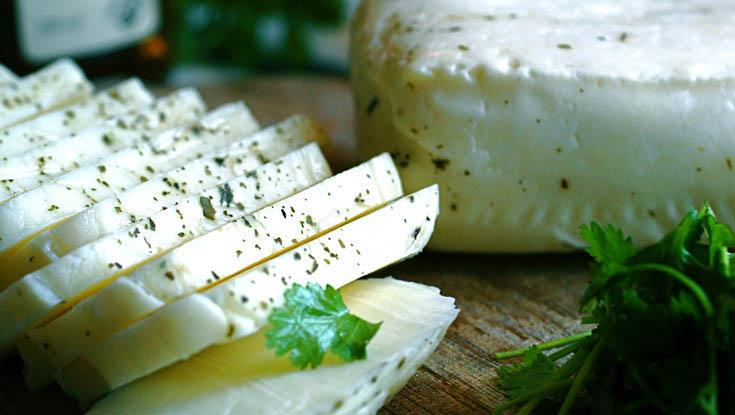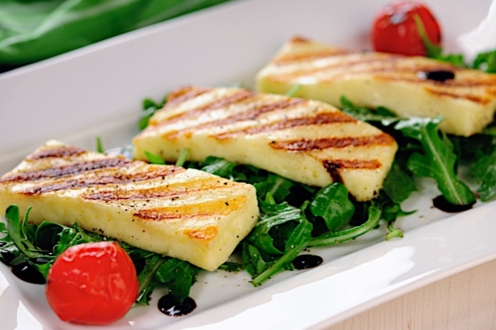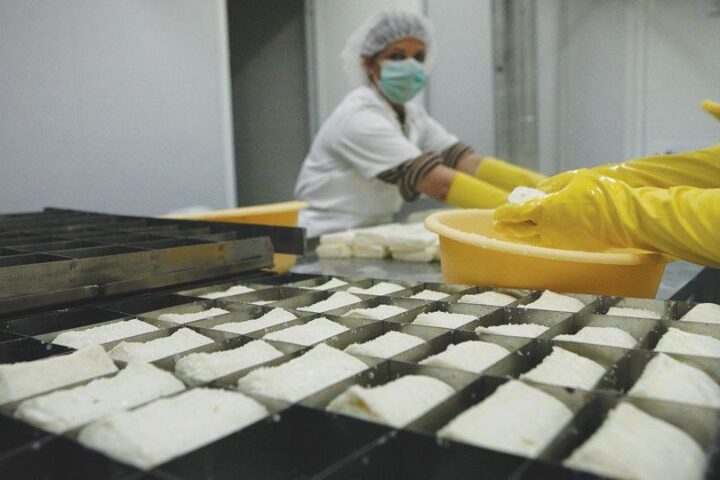Two weeks before Halloumi hits supermarket shelves across the European Union as a protected designation of origin (PDO) product, Cyprus cheesemakers have challenged it, claiming exports worth millions are endangered.
From 1 October, Halloumi’s PDO status means the squeaky cheese can only be produced in Cyprus, preventing imitators from claiming the crown.
However, cheesemakers are challenging the traditional cheese’s newly acquired PDO status in court.
On Thursday, the Cyprus Cheesemakers Association and 11 other applicants appealed to the EU’s General Court of the Court of Justice, arguing it should annul the European Commission’s decision to enter the terms Halloumi/Hellim into the register of protected designations of origin and protected geographical indications.
The appeal is based on technicalities, but the reason is that it will dent the €300 mln in exports of the rubbery cheese.
In comments to the Financial Mirror, George Petrou, the President of the Cyprus Cheesemakers Association, said producers were ‘forced’ to take action as adoption of the file will endanger Halloumi exports due to the ‘tight’ criteria.
Cyprus’ dairy producers fear they will not meet the strict description of the cheese’s PDO file.
The thorny issue for cheesemakers in the file foresees that goat’s milk should by 2024 exceed cow’s milk, reaching a minimum of 51%, made from specific Cypriot breeds of goats and sheep, while the products can only be sold in the traditional folded block shape.
Dairy producers argue that a shortage in goat and sheep milk will make it next to impossible to produce Halloumi in the quantities they are accustomed to.
The PDO file specifies that goat’s milk used in the mix should be from local goat tribes, fed with specific animal fodder.
“The problem will be made worse as the file stipulates that sheep and goats producing milk for Halloumi should be of Cypriot origin.
“However, at present, 70% of the sheep and goat population in Cyprus are not native,” said Petrou.
He argued that milk scarcity is just one of the reasons why the dairy producers objected to the PDO and had called on the government to withdraw it.
Plunging sales
Petrou said the requirement for the product to be sold in folded blocks weighing between 200 and 300 grams excludes a wide range of Halloumi side products.
“A possible implementation of the file in 2024 will see us rushing to find goat’s milk, endangering the country’s €300 mln exports in halloumi.”
Cheesemakers fear the obligation to sell Halloumi in blocks could lead to plunging sales of other popular products, such as halloumi burgers and light Halloumi, which will no longer be able to carry the brand name.
In recent years, sales and exports of Halloumi shot through the roof, with 2020 bringing in a whooping €266.5 mln.
The mini-crisis came when Halloumi exports were hit by the coronavirus pandemic, with demand dropping as restaurants and other hospitality venues closed under COVID restrictions.
Stakeholders, however, are confident that Halloumi exports will be back on their upward track.
Earlier in the year, the Agriculture Ministry valued the global halloumi cheese market at €420 mln, while studies show the market could generate over €625 mln in several years.
According to Dublin-based Researchandmarkets.com, the halloumi market is projected to nearly double in six years to reach $737.0 mln by 2027, registering a compound annual growth rate (CAGR) of 10% from 2021 to 2027.
The Agriculture Ministry is not concerned over the appeal submitted by the cheesemakers, with a ministry source telling the Financial Mirror for them it is business as usual as nothing will change with the appeal.
The source said the cheesemakers have the right to appeal if they feel that it is in the best interest of Halloumi and the industry.
“As of 1 October, Halloumi will be a Product of Designated Origin, which will provide Cyprus’ traditional cheese with the much-needed protection against imitators,” said the source.
“Cheesemakers have already sent in their applications to be evaluated by the designated body Bureau Veritas, which will also be carrying out inspections at the sites where the cheese is made.”
From 1 October, products that are labelled as Halloumi must carry the PDO seal.
“The existing legislation already excludes products that fall short of the description in the PDO file. So, in essence, not much should change, and exports should be unaffected.”










